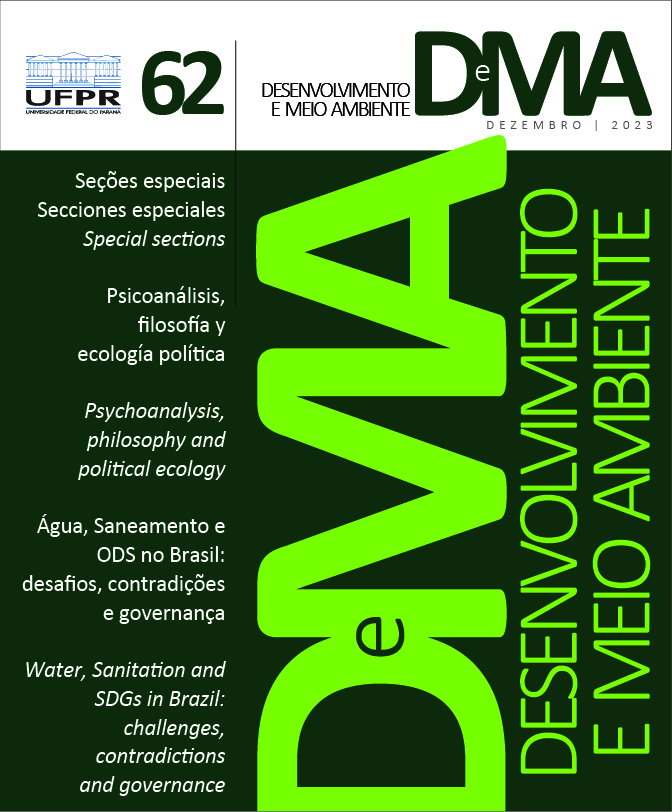Risks, the petroleum company, and the ongoing sustainable energy transition
DOI:
https://doi.org/10.5380/dma.v62i0.81766Palavras-chave:
risk society, risk management, environmental licensing, oil & gas, Brazilian Petroleum Institute (IBP)Resumo
This article scrutinizes oil companies’ ability to manage risks through the prism of the economic, sociological, and Political Science literature, notably the concept of Risk Society. It focuses on the example of environmental risks in light of the ongoing sustainable energy transition’s deep decarbonization goal, whose success hinges on shifting oil companies’ risk-reward relationship to a less favorable terrain. It is shown that, while oil companies could actively shape the risk-management institutions they interacted with throughout much of the 20th century, shipping accidents and society’s perception of the activity’s risk forced oil companies to growingly comply with rules that are set exogenously. The rest of the article is illustrated by two examples from Brazil’s E&P sector environmental management rules: first, the adoption of SEA practices, and second, a 2013 Cooperation Agreement between the Brazilian Petroleum Institute and IBAMA. It is argued that as Ecomodernism’s stance growingly moved to a “weak” form, oil companies were reinvited as deliberating parties or had their demands attended by the public hand. During the 2010s, as hybrid governance mechanisms came into the fold in the environmental realm, oil companies had the possibility of reinventing their stance towards actively shaping the risk-management institutions, which they now frame in more environmentally cooperative terms. It is suggested that a renewed risk-managing ability on behalf of oil companies retards the pace of the ongoing sustainable energy transition because it does not occur at the same pace in every country of the world. Hence, the ability to manage risks in a growingly risk-prone world for oil companies not only ensures profitability during oil's phasing out but also aids these companies in repositioning themselves as carbon-neutral players in a world that growingly marches towards renewable energy.
Downloads
Publicado
Como Citar
Edição
Seção
Licença
Os Direitos Autorais sobre trabalhos publicados nesta revista são do autor, com direitos de primeira publicação para a revista. O conteúdo dos trabalhos publicados é de inteira responsabilidade dos autores. A DMA é um periódico de acesso aberto (open access), e adota a licença Creative Commons Atribuição 4.0 Não Adaptada (CC-BY), desde janeiro de 2023. Portanto, ao serem publicados por esta Revista, os artigos são de livre uso para compartilhar (copiar e redistribuir o material em qualquer suporte ou formato para qualquer fim, mesmo que comercial) e adaptar (remixar, transformar, e criar a partir do material para qualquer fim, mesmo que comercial). É preciso dar o crédito apropriado, prover um link para a licença e indicar se mudanças foram feitas.
Os conteúdos publicados pela DMA do v. 53 de 2020 ao v. 60 de 2022 são protegidos pela licença Creative Commons Atribuição – Não Comercial – Sem Derivações 4.0 Internacional.
A DMA é uma revista de acesso aberto desde a sua criação, entretanto, do v.1 de 2000 ao v. 52 de 2019, o periódico não adotava uma licença Creative Commons e, portanto, o tipo de licença não é indicado na página inicial dos artigos.




